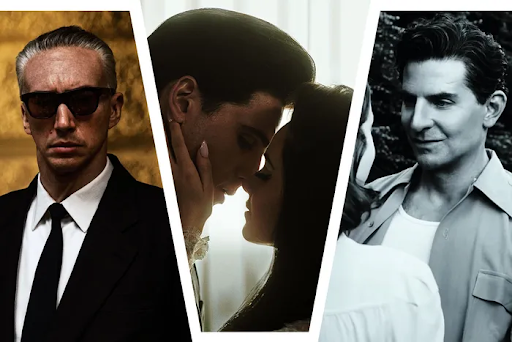Source: Vulture
Under most normal circumstances, a major international film festival is already hardly anything to overlook. Not only can such an event draw attention to an abundance of feature-length and short films made in various locations across the globe, but it can be also be a useful means of determining which cinematic creations have the greatest potential to either achieve major awards buzz or become a sleeper hit at the box office (if not both). However, under the current circumstances, film festivals might be a more valuable asset to major studios than usual. With the ongoing WGA and SAG-AFTRA strikes making it difficult for most studios to either make more films or promote the ones they’re eagerly awaiting to release (to a point where Warner Bros. “Dune: Part 2”, which many had expected to be one of the biggest critical and commercial successes of the latter end of 2023, has recently been pushed back to March of next year), it’s up to the smaller, independently-produced features, many of which do not require such extravagant promotion, to fill the void currently being left by the increasingly postponed major releases. Because of this, more eyes are looking towards film festivals than ever as analysts and industry professionals to determine which of these smaller, but no less admirable works of cinema have the best chance of leaving an impact in the upcoming final weeks of the year. This year’s Venice International Film Festival (VIFF), which marks the 80th anniversary of the annual event, is one such festival that is currently garnering the interest of many noteworthy names and associations. Having commenced on Wednesday, August 30th and going until Saturday, September 9th, VIFF currently plans to exhibit an impressive number of films that were already highly anticipated in the weeks prior to its beginning, and if their reception at Venice is as strong as desired, there’s a solid chance that people will continue to hear about them throughout the rest of the current year and the first few months of the next.
When it comes to films that are often thought of as being especially catered towards the interest of awards groups, biopics are often the first to come to mind, as their recreation of real-world events and people can, if executed properly, represent the art of cinema at its most authentic and artistically appealing. That mentality seems to be alive and well at this year’s Venice festival, with there being at least three big-screen biopics set to be screened and (hopefully) appreciated by those attending the event. Bradley Cooper, for example, is going above and beyond with his Leonard Bernstein biopic “Maestro”, a film that he has not only directed and written (alongside Josh Singer in the latter task), but also stars as the famed composer. Though there has been some controversy surrounding the questionable make-up Cooper donned in order to better resemble the real-life Bernstein, Cooper and distributor Netflix are confident that the film as a whole, one for which Steven Spielberg and Martin Scorsese both serve as producers, will be able to overcome this minor dilemma and inspire awe in those who view the film at Venice.
Sofia Coppola, meanwhile, also has her own biopic ready and waiting to screen at VIFF, one that many have described as being a near-perfect compliment to a film that had come out just a year prior. That film is “Priscilla”, which centers its attention on Priscilla Presley, the wife of iconic singer Elvis Presley, and looks to be the polar opposite of last year’s Baz Luhrmann-directed “Elvis” in every way. As opposed to that film’s bold and spectacle-driven stylization, Coppola has brought a more subdued and intimate approach to her portrayal of the life of the woman who went on to marry one of the biggest names in the history of American music, and it’ll be quite fascinating to see how the film tackles the real-life events on which it’s based in comparison to how Luhrmann did the same with this film.
Perhaps the most intriguing Venice biopic of the bunch, however, is “Ferrari”, the first film to have been directed by Michael Mann of “Heat” and “Collateral” fame in over eight years, and one that he has allegedly been trying to get off the ground since the early 1990s. In fact, the idea for the film may actually have roots in a much earlier point in Mann’s life, during a time in which he’s said to have been quite obsessed with the automobiles produced by the Ferrari car company. If that’s the case, then Mann has been enthusiastically awaiting the completion and release of this film for most, if not all of his life. With such a history, one can only hope that the film is able to live up to the hype, and with Adam Driver playing the lead role of Enzo Ferrari and a script that narrows in on Ferrari’s experiences during the year 1957, it’s safe to say that Mann’s biopic will be unconventional, but nonetheless worthy of one’s interest.
It’s not just biopics that are generating a significant amount of buzz at VIFF years though; as a matter of fact, some of the films set for exhibition at this year’s festival are perhaps more unconventional than what Mann has to offer. Actress Emma Stone and director Yorgos Lanthimos, who had previously collaborated on 2018’s “The Favourite”, have joined forces once again to create “Poor Things”, an adaptation of Alasdair Gray’s 1992 novel that has been described as a “postmodern revision of Frankenstein”. David Fincher and Harmony Korine each have a film about a hit-man, with the former directing “The Killer” for Netflix and the latter going in a more fantastical direction with his film “Aggro Dr1ft”. Wes Anderson, just a few months after the nationwide release of his latest feature “Asteroid City”, will introduce a short film titled “The Wonderful World of Henry Sugar”, his second Roald Dahl adaptation following 2009’s “Fantastic Mr. Fox”. William Friedkin’s final film, “The Caine Mutiny Court Martial”, will hopefully close the recently passed director’s decades-long career on a high note. Then there is “The Beast”, a French production directed by Bertrand Bonello and starring Lea Sydoux that revolves around a futuristic society and the star-crossed romance that somehow finds life within.
All of these films, as well as several more, are expected to shine brightly at this year’s Venice International Film Festival and garner the interest of those who may wish to further promote these films over the course of these next few months. As stated earlier, many of them are anything but conventional, but with the current state of the industry likewise being anything but conventional, such films may just be what’s needed to keep cinema alive as the industry remains at a standstill.




